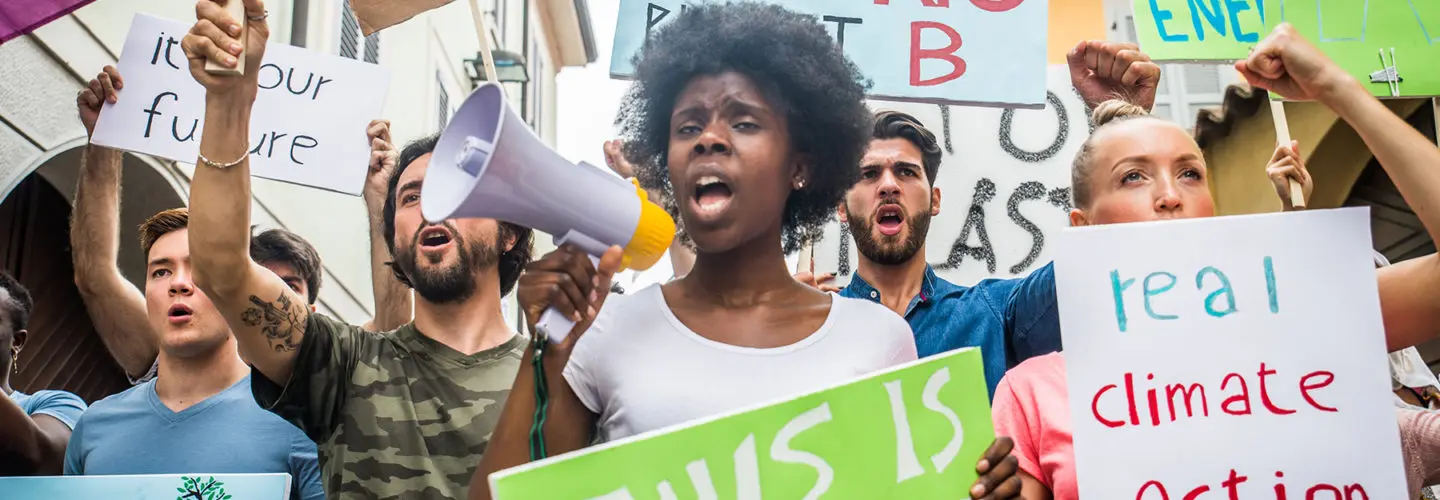Pressing for Environmental and Climate Justice for a Just Transition as we celebrate MLK Day
This week we remember the foremost civil rights leader, Rev. (Dr.) Martin Luther King Jr., and the giant strides of the civil rights movement in cementing justice and equity into the fabric of our society. The impact of the movement was not limited to social justice, it informed the tenets of environmental justice, and it is shaping clean energy solutions and policies for a just transition.
When institutions and agencies fail to build in equity, justice, and the plight of disadvantaged communities, the failure in policies is glaring. Historically, this has been the course of environmental injustice in the United States. From the siting of power plants and waste facilities, the concentration of industries and factories, and housing discrimination, policies that segregate and primarily benefit affluent white communities are still hampering progress on environmental and climate justice alike. This disproportionate burden of environmental pollution and harm suffered by mostly people of color through unjust policies and practices is environmental racism.
The absence of diversity, equity, inclusion, and justice (DEIJ) lens as we transition to clean energy and meet climate goals could lead to a repeated pattern that compounds environmental racism, leaving black and brown communities behind from thriving in a clean environment and a safe climate. Equity and justice in the energy and climate landscape is a consideration of high energy burden people in low-income communities and communities of color experience; policy forums with more representation and voices from the most impacted communities of environmental and climate inactions; specific programs catered to renters for housing retrofits as well as the enactment of legislatures that meets their needs. From building decarbonization and electrification to public transportation to diversity and representation in policy forums, policies and laws that cater to all must be put in place for a truly just transition.
Across the country, states, municipalities, and agencies are incorporating equity and justice into their climate policies and action plans. Our goal at Acadia Center is to ensure that agencies, policymakers, and public officials at all levels are held accountable to the enacted climate goals, and provide research and solutions that address climate inequities and pitfalls to climate inactions and injustice. This was why we advocated that the third program review of the Regional Greenhouse Gas Initiative (RGGI) centers equity by prioritizing the needs of environmental justice communities. In Maine, Acadia Center is keeping tabs on the LD1682 implementation process as the state progresses on defining “environmental justice”, “environmental justice populations”, “frontline communities” in the context of Maine. We are providing equity-centered solutions to connect regulatory silos and help regulators and the grid provide services to consumers while prioritizing equity and environmental justice through Reforming Energy System Planning for Equity and Climate Transformation (RESPECT).
Our efforts stem from the understanding that climate solutions are most impactful when guided by the values of diversity, equity, inclusion, and justice. The success in tackling emissions and creating a future that relies on clean energy depends on a transition that is well planned to lift and benefit all communities, regardless of race, class, and ethnicity. As we celebrate the legacy of Rev. (Dr.) Martin Luther King Jr. and his contributions today, we are reminded of our commitment to environmental justice and a clean and safe carbon-neutral economy that benefits all people.




















Follow us